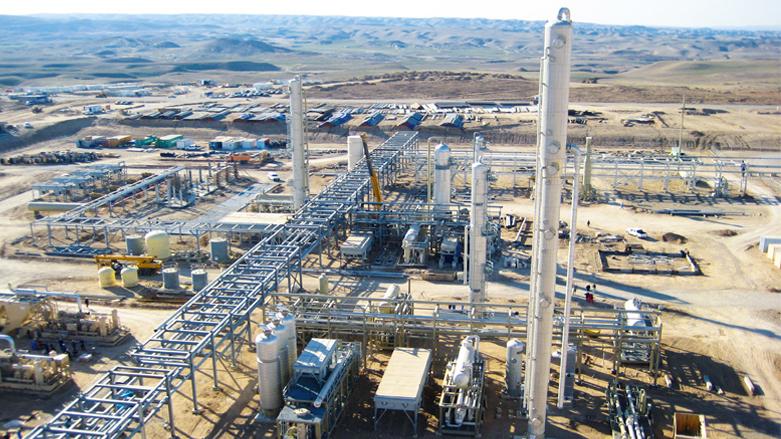
Matthew M. Zais
Editor
Iran’s threat to Kurdistan is a greater challenge to the oil market than OPEC quotas

Global attention on the oil market and prices at the pump have focused on Russia’s invasion of Ukraine, OPEC+ production increases, and how companies can increase oil production and refinement. However, twin challenges in the Kurdistan Region of Iraq could have a more profound market impact than any OPEC+ quota increase. These threats are politically avoidable and largely unrecognized. President Joe Biden is likely to meet Saudi Arabian Crown Prince Mohammed bin Salman at the sidelines of the Jeddah conference next month with an eye to securing OPEC oil production increases that will lower global crude prices. But at the same time, the U.S. is ignoring an easily avoided situation in Iraq that could take even more oil off the market, raise prices, and render Biden’s trip pointless.
The Kurdistan Regional Government (KRG) originated in 1991 from the U.S.-imposed no-fly-zone under Operation Provide Comfort which restored Kurdistan’s semi-autonomy and halted Saddam Hussein’s assault on the ethnic nation. As the KRG celebrates its 30-year anniversary, Kurds remain the largest stateless ethnic group in the world and are now subject to unprecedented threats from Iran through Iraq’s parliament, militias, and now its courts. These threats now place both the global oil market and one of the most reliable U.S. partners in the Middle East at risk.
Iran threatened the Kurdistan Region when it allied with the Shia firebrand Muqtada Sadr to form a government that sought to exclude Iran-backed parties including former Prime Minster Nouri Maliki. In the last year alone, Iraq’s government-funded, Iran-backed militias have conducted 580 rocket, drone, and IED attacks against U.S. and coalition forces and convoys, including 15 known drone attacks against U.S. bases. Iran’s attacks have also focused on Kurdistan’s oil and gas sector. Just this year, Iran rocketed and destroyed the home of Kurdistan’s most prominent oil businessman, and its Iraqi militias took a Kurdistan refinery offline and have also launched at least five separate rocket and drone attacks against Kurdistan’s oil infrastructure.
Kurdistan’s oil sector and corresponding financial semi-autonomy is a remarkable success story. Until 2007, the Region had no oil development and was economically dependent on Baghdad, living under a constitution that the U.S. brokered but was unwilling to enforce. The Kurds recognized their need to become economically independent and attracted international investment through competitive oil and gas Product Sharing Contracts. In 15 short years, the Kurdistan Region of Iraq now produces approximately 450 thousand barrels of oil per day. Kurdistan’s gas resources are now poised to help both Iraq and eventually wean Turkey and southern Europe off Russian and Iranian gas supplies. None of these developments are what Iran has in mind for its vision for Iraq.
The Kurdistan Region’s oil is exported via the Iraq-Turkey Pipeline, which is sold through the Mediterranean port of Ceyhan. Under direct influence from Iran, Iraq has waged a two-pronged legal challenge to Kurdistan’s oil economy. In mid-July, a Paris-based arbitration court is set to resume hearing Baghdad’s case against Turkey for allegedly violating their pipeline agreement by allowing Kurdistan oil exports. While Ankara believes a settlement remains possible, Baghdad is unwilling and unable to negotiate, hoping to achieve a large judgement imposed against Erdogan’s government. If this occurs, Turkey may shut the pipeline and wipe 450 thousand barrels of oil a day off the market. This is twice as much oil that OPEC+ recently agreed to increase for its July and August quotas, which is a driving factor in President Biden’s upcoming trip to Riyadh.
The second and most pressing legal challenge came from Iraq’s Federal Supreme Court in February. In a 30-minute hearing held while Iraq was between elected governments, the court ruled on a 10-year-old case that Kurdistan’s oil sector is unconstitutional. In addition, the Court upended Iraq’s government formation and further ruled that Iraq’s government cannot legislate in its caretaker status. All of these rulings are contradictory to precedent and clearly politically motivated and directed by Tehran. The ruling against Kurdistan’s oil sector came shortly after Iran’s Revolutionary Guards Corps-Quds Force (IRGC-QF) Commander, Ismael Qaani, visited Baghdad to meet with senior Iraqis in efforts to emulate his predecessor, Qassim Soleimanii’s role in Iraq’s government formation. This Iranian influence has now cascaded into Iraq’s lower courts who have selectively summoned at least seven international oil firms seeking to invalidate their contracts with the KRG. Curiously, no Emirati or Russian companies received summons yet, or companies who Iraq hopes to convince to remain in Iraq. Iran’s influence was also evident in Iraq’s recent legislation to criminalize relations with Israel and prevent Iraq from ever entering the Abraham Accords.
The Kurdistan Region, Iraq itself, and the global oil markets are all teetering on a precipice. The U.S. continues to fund Kurdistan’s military salaries to the tune of $14 million per month, while Baghdad continues to fund the Iran-backed militias. For the first time since the 2003 invasion, the U.S. has sat out Iraq’s government formation, likely because it would require confronting growing Iranian influence while the Biden Administration simultaneously sought to revive nuclear negotiations. Iraq’s sovereignty, the Kurdistan Region’s ability to remain a key U.S. strategic partner, and the global oil market are now all at risk. Iraq’s future has also never been more bleak: it remains artificially dependent on Iranian energy, unable to meet growing energy demand, and incapable of tackling crippling corruption despite record oil revenues.
As Biden is set to meet with Saudi’s Crown Prince and Iraq’s Prime Minister next month, there has never been a better opportunity for the U.S. and international community to reengage in the Middle East and stabilize our most important allies and the global economy. President Biden alone has the political weight to underline just how important it is for Baghdad to take a breath and consider what its vendetta against Kurdistan oil exports will cost the global economy in terms of rampaging oil prices and hastened and deepened recessions. The international community does not tend to help Iraq unless the U.S. marshals such assistance, and Washington needs to signal that it cannot do so if Baghdad is taking steps that may torpedo efforts to stabilize global oil prices.
Matthew M. Zais works for an American energy company with interest in the region and is a non-resident senior fellow at the Atlantic Council.
The views expressed in this article are those of the author and do not necessarily reflect the position of Kurdistan 24.
This article was originally published by Real Clear Energy.